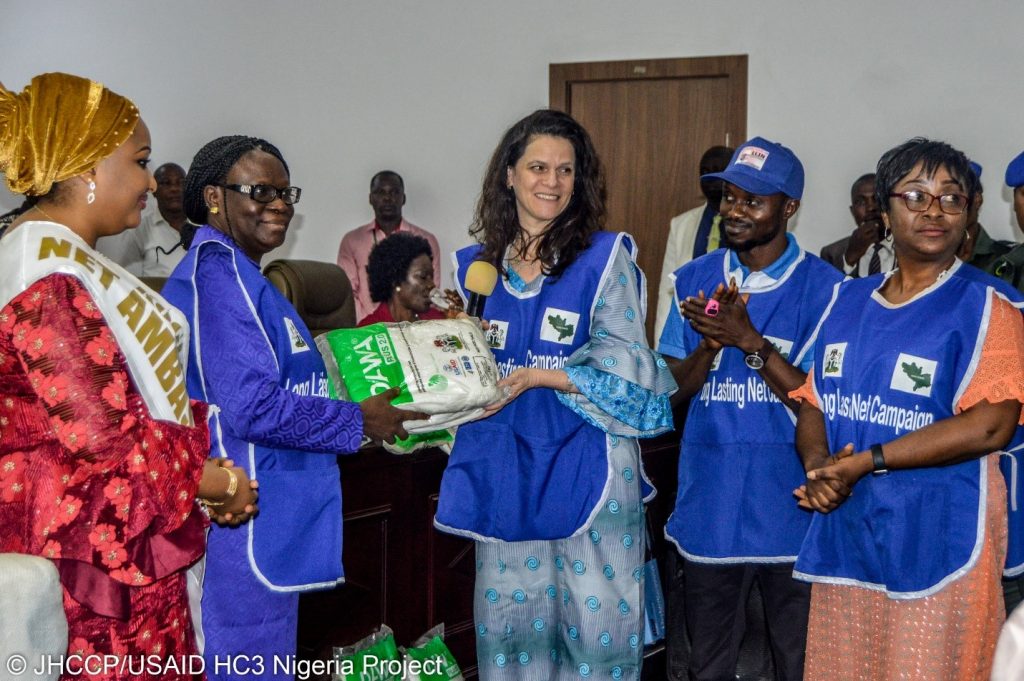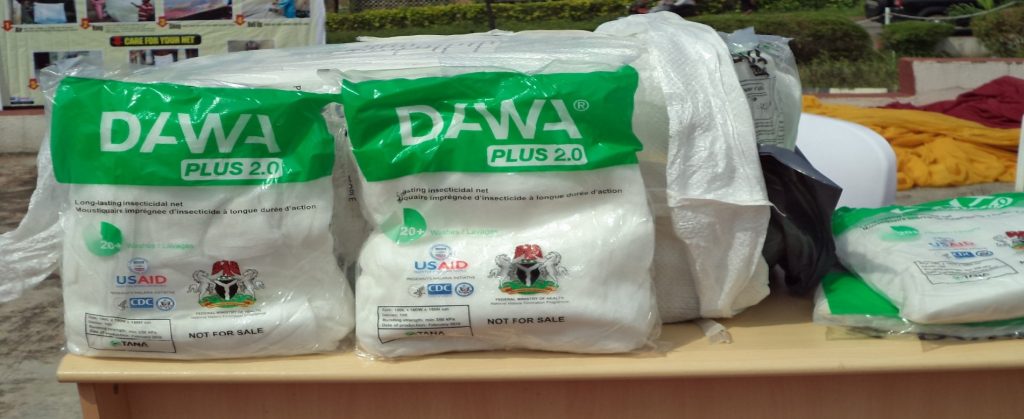
Dr Nancy Lowenthal (USAID Health Office Director) hands over LLINs to Prof. Folashade Ayoade (Kogi State SSG) while the wife of the Governor Rashida Bello (Kogi Net Ambassador) and other government functionaries look on.
In March 2017, PMI carried out a long-lasting insecticide-treated nets (LLIN) replacement campaign in Kogi State, located in the north central region of Nigeria. A total of 2,156,079 net cards were issued by household mobilizers to reach 4,130,363 individuals. The issuance of these net cards resulted in the distribution of 2,058,043 LLINs to protect 4,116,086 individuals in twenty-one local government areas (LGA) of the state. The implementing team for this campaign faced several challenges due to insecurity and high rates of crimes in Kogi State. Security issues such as kidnappings have recently been on the rise in this area, adding a significant implementation obstacle. These challenges were overcome by strong ownership and cooperation from the state government as well as security agencies. This assistance was harnessed through efficient advocacy led by the PMI team and their implementing partners: the Global Health Supply Chain Program – Procurement and Supply Management Project (GHSC-PSM) and the Health Communication Capacity Collaborative (HC3).
Once the campaign commenced, there was a high level of involvement by relevant ministries, departments, and agencies in Kogi State. Town announcers were engaged to sensitize the community, and campaign jingles aired on several radio stations to create awareness. A total of 11,222 LGA and State Ministry of Health staff were trained to facilitate the campaign process.
Overall, the campaign was successful because of strong partnerships, technical expertise, and open communication on the part of the Kogi State government, security agencies, the people of Kogi state, and PMI and its partners.

